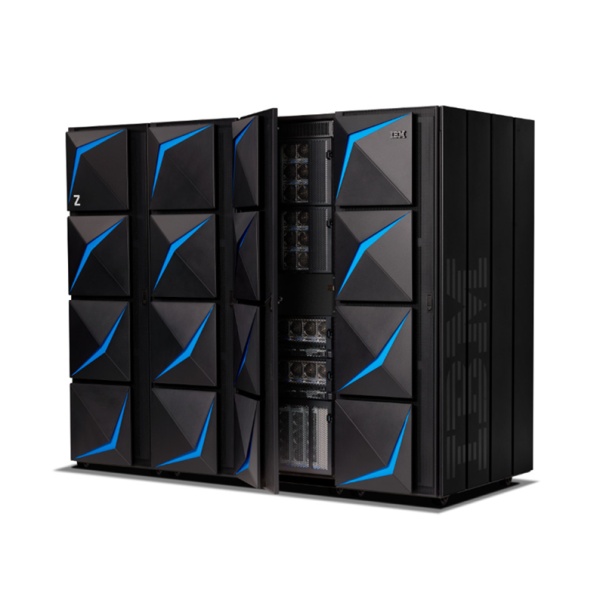In a monumental move, Cisco Systems, known for its networking equipment, has announced its intent to acquire Splunk for $28B USD ($157/share), the San Francisco-based company renowned for its software platform that monitors, searches, and analyzes big data along with a full suite of cyber security offerings. Both companies have significant histories in the tech industry, with Cisco having a footprint in network management and cybersecurity, while Splunk focuses on real-time data processing and analytics. The acquisition makes sense for Cisco as they have been reshaping their business from hardware-centric to higher margin software-centric. Does the acquisition of Splunk by Cisco make sense for either company’s customers is quite a different question.
Here are some of the critical areas customers of each company should be wary of as the companies combine:
Product Integration:
A critical concern in any tech merger is how the products of the two companies will be integrated. Splunk’s real-time data processing capabilities combined with Cisco's network and cybersecurity expertise can result in groundbreaking solutions. But the road to successful integration can be fraught with challenges. Historically, some mergers falter because the integration process disrupts the user experience or dilutes the efficacy of standalone products.
Cisco has been building out its monitoring capabilities with the acquisition of AppDynamics and others, but with Splunk they will fill gaps around applications and security and give them more of a full stack capability.
In this case, Customers should be on the lookout for indications of whether the new suite of solutions remains user-friendly and effective, or if it becomes a cumbersome mishmash of features. Of particular concern is around Cisco’s strategy up until the acquisition to use open-source options, which could lead to some integration problems for some customers as Splunk becomes more ingrained – problems that will likely only be solved with more investments.
Pricing Structure:
Acquisitions often lead to pricing changes, and most of the time not in the customer’s favor long term. Whether this translates to cost savings for customers or price hikes in the short term remains a question. Splunk has always had a reputation for being pricey and quite often hard to understand. With its incorporation into the Cisco umbrella, will this pricing structure become more aggressive, or will customers see more flexible pricing options as Cisco attempts to bring it into line with their own cost models?
It is recommended that before being asked to invest more or move to new agreements, that complete due diligence be performed against the market to ensure what is being proposed is aligned to your long-term plans. Often the first agreements and pricing models from a newly formed entity or combined products are less than optimized.
Data Privacy and Security:
Splunk deals with significant amounts of data, and its users depend on its platform for critical analytics. When combined with Cisco's vast networking infrastructure, the data processed and stored can be monumental. In this age of heightened concern for data privacy, how will the combined entity manage, protect, and possibly monetize this data?
Customers will undoubtedly want reassurances regarding the sanctity of their data. Cisco’s ‘Trust Center’ statements can be found here, and Splunk thus far is committed to Data Privacy (found here), but the devil is in the details and should be reviewed constantly for changes that may go unnoticed over time.
Support and Service Quality:
Both Cisco and Splunk have had their individual support infrastructures. With the acquisition, there's a high probability of restructuring, which could affect the quality and responsiveness of customer support. Will the knowledge base for solutions be diluted due to cross-training after the deal closes and Splunk employees are integrated into Cisco? There were already complaints that Splunk had been struggling to support and onboard SMB customers whose spend was not huge. These are concerns customers might be grappling with soon.
Knowledge or ‘brain drain’ will also be a concern. Will Splunk’s best and brightest be snatched up by the competition or will Cisco make it too hard for top people to leave? Time will tell, so customers will have to be proactively managing KPIs around their performance here to ensure they get the most out of their investments with both companies.
Commitment to Innovation:
Cisco and Splunk are both industry leaders and innovators. One potential fallout of such acquisitions is a deceleration in innovation. With the focus on integrating teams and products, there's a risk that the drive to push boundaries takes a back seat. Customers of both companies, who have come to expect cutting-edge solutions, will be keen to see if the pace of innovation continues post-acquisition, slated to close in Q3 2024.
AI will be a focus for the newly formed entity as they now have more of that ‘full stack’ view of the observable enterprise and will want to integrate the proactive qualities of the technology. Analyzing the ever more complex threat surface of companies can be more manageable and more secure with the integration of AI capabilities.
Cultural Shifts:
Each company has its own corporate culture and ethos. Splunk, for instance, has thrived on its dynamic, start-up-like atmosphere. Although that has waned somewhat through their own growing pains, compared to a behemoth like Cisco, they are still more of a startup by comparison.
“Together, we will become one of the largest software companies globally,” Chuck Robbins, chair and CEO of Cisco told analysts during a call about the acquisition. “Our combined capabilities will create an end-to-end data platform to enhance digital resiliency.”
The acquisition by a giant like Cisco will likely shift this equilibrium. Historically, while this situation may not directly impact the products, it could affect employee morale, and consequently, product development and support for the Splunk customers. Ask yourself, generally have you received better customer service from large behemoth companies, or smaller agile ones?
Cisco’s success with acquisitions is also suspect. Recent endeavors have been better, but Cisco’s history is littered with acquisitions that get starved and die on the vine
Opportunities abound but caveat emptor.
To summarize, while the Cisco acquisition of Splunk promises exciting prospects for the world of network management and data analytics, customers have genuine concerns. The integration phase will be crucial. Successful melding of the products without diluting their essence, combined with maintaining a keen focus on customer support, innovation, and data privacy, will determine how this acquisition is perceived in the long run. It's an interesting time for stakeholders of both companies, and the tech industry will be keenly watching the developments.
Both companies will have several fiscal quarters between now and when they close the proposed deal. Contact us to maximize your benefits presented and minimize your risks posed by the combination of Cisco and Splunk.
About NET(net)
Founded in 2002, NET(net) is the world’s leading IT Investment Optimization firm, helping clients find, get, and keep more economic and strategic value in their technology supply chains. Over the last 20 years, NET(net) has influenced trillions of investment, captured hundreds of billions of value, and has helped clients cost and value optimize XaaS, Cloud, Hardware, Software, Services, Healthcare, Outsourcing, Infrastructure, Telecommunications, and other areas of IT spend. NET(net) has the experience you want, the expertise you need, and delivers the performance you demand and deserve. Contact us at info@netnetweb.com, visit us online at www.netnetweb.com, or call us at +1 (616) 546-3100 to see if we can help you capture more value in your IT investments, agreements, deployments, and relationships.
NET(net)’s Website/Blogs/Articles and other content is subject to NET(net)’s legal terms, offered for general information purposes only, and while NET(net) may offer views and opinions regarding the subject matter, such views and opinions are not intended to malign or disparage any other company or other individual or group.


















